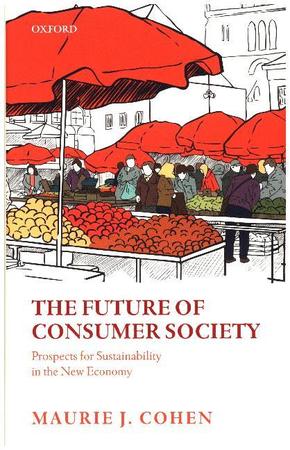The Future of Consumer Society - Prospects for Sustainability in the New Economy
| Verlag | Oxford University Press |
| Auflage | 2016 |
| Seiten | 234 |
| Format | 17,0 x 22,3 x 1,7 cm |
| Print PDF | |
| Gewicht | 401 g |
| Artikeltyp | Englisches Buch |
| ISBN-10 | 0198768559 |
| EAN | 9780198768555 |
| Bestell-Nr | 19876855EA |
Shows how consumer society is changing due to demographic ageing, rising income inequality, political paralysis, resource scarcity, and steady jobs being replaced by freelancing. It examines how people are striving to find new ways to ensure livelihoods and the role that the role that worker-consumer cooperatives could play.
Consumer society in the United States and other countries is receding due to demographic ageing, rising income inequality, political paralysis, and resource scarcity. At the same time, steady jobs that compensate employees on a salaried or hourly basis are being replaced by freelancing and contingent work. The rise of the so-called sharing economy, the growth of do-it-yourself production, and the spreading popularity of economic localization are evidence that people are striving to find new ways to ensure livelihoods for themselves and their families in the face of profound change. Indications are that we are at the early stages of a transition away from a system of social organization predicated on consumerism.
These developments have prompted some policy makers to suggest providing households with a non-labor source of income that would enable more adequate satisfaction of their basic needs. These proposals include a universal basic income, a citizen's dividend, and a le gal framework for broad-based stock ownership in corporations. However, extreme political fractiousness makes it unlikely that these recommendations will receive prompt and widespread legislative endorsement in most countries. In the meantime, we seem to be moving incontrovertibly toward a twenty-first century version of feudalism. How might we chart a different path founded on social inclusiveness and economic security?
A practicable option entails establishment of networks of interlinked worker-consumer cooperatives that organizationally unify production and consumer. Such modes of mutual assistance already exist and The Future of Consumer Society profiles several successful examples from around the world. If replicated and scaled, worker-consumer cooperatives could smooth the transition beyond consumer society and facilitate a future premised on sufficiency, resiliency, and well-being.
Inhaltsverzeichnis:
Preface
1: Introduction
2: Fathoming Consumer Society
3: The (Mostly) Empty Promise of the Sharing Economy
4: The Mass Market Maker Movement
5: Localization Fallacies
6: Consumption in the Era of Digital Automation
7: Conclusion
Rezension:
This timely and insightful book is a must-read for anyone interested in the future of Western consumer society. It offers a careful appraisal of the challenging circumstances in which the United Statesthe prototype of consumer societies worldwide finds itself today. Maurie Cohen, a leading expert on sustainable development, carefully outlines and weighs the promises and pitfalls of the alternatives currently being debated as potential pathways to more sustainable societies. Practitioners and policy makers concerned with the good life for consumers, workers, and citizens will find this book an inspirational reference tool. Lucia A. Reisch, Professor and Chair of Intercultural Consumer Research and European Consumer Policy, Copenhagen Business School and co-editor of the Handbook of Research on Sustainable Consumption.

